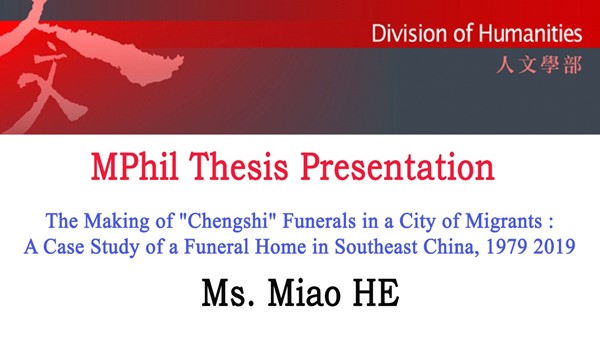Abstract:
This thesis aims to examine the making of the Shine city’s cheng shi(urban城市) funeral from 1976 to 2019. The Shine city is a city of migrants built by rapid industrial construction in the early PRC history. The government mobilized people from all over the nation to the city. From 1965 to 1976, the urbanites were constrained in a homogeneous urban life, namely the danwei system. The memorial service had become a single funeral to handle the death issue. However, the reform and opening-up policy loosens the cultural regulation and open the new ritual space for the funeral. This new space urges the urbanites in Shine city to utilize it. Giving up their multi-cultural background, the urbanites have built up their new traditions that differing with both the rural people in the Shine city and their relatives in hometown.
Through analyzing the information archived from fieldwork in Shine city funeral home. I argued that there are three important factors influence the formation of these new traditions. First is the local government’s intensive control. The monopoly of the transportation, cremation, and placement of the cinerary casket by the government ensure the fixed rites of corpse disposal. Secondly is cheng shi identity construed by the past danwei system and factory life. The collective memory toward the factory and the social network built in past life lead the urbanites to preserve the memorial service yet not be enforced by government. Thirdly is the collective recognition toward the traditional Chinese funeral. Although lacking the imitation model and unified customs, the urbanite still coming up a standardized traditional funeral framework spontaneous. Further investigation reveals that this framework is fitting in James L. Watson’s elementary funeral framework. This proves the applicability of his orthopraxy theory in contemporary China after decades of cultural reform.
Speaker:
Ms. Miao HE
https://engage.ust.hk/event/4765201
huma@ust.hk
